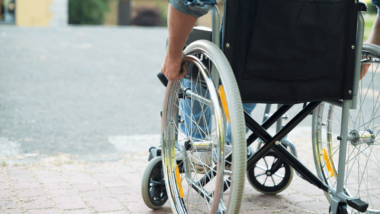A strong majority of Peers have spoken against assisted suicide in the House of Lords’ first debate on Kim Leadbeater’s Bill.
During the first day of Second Reading, around twice as many speakers opposed the Terminally Ill Adults (End of Life) Bill as supported it, reiterating serious concerns around coercion, unworkability and impact on the vulnerable. The debate will resume next Friday for a rare second day, to allow for the scores more Peers who have put themselves forward to speak.
Under the proposals, patients deemed to be terminally ill and with less than six months to live would be allowed to receive help to kill themselves. Two Lords’ Committees have already warned that the Bill gives so much power to ministers that there is “insufficient detail” for a “morally significant subject”.
‘Suicide is wrong’
Former Prime Minister Baroness May of Maidenhead raised concern that “as we have seen in countries where there is such a law, people will feel that they must end their lives simply because they are a burden on others.
“I worry about the impact it will have on people with disabilities, with chronic illness, with mental health problems. Because there is a risk that legalising assisted dying reinforces the dangerous notion that some lives are less worth living than others.”
She emphasised: “Suicide is wrong. But this Bill effectively says suicide is okay. What message does that give to our society? Suicide is not okay, suicide is wrong, this Bill is wrong, and in my opinion it should not pass.”
Cancer
Baroness Prentis of Banbury, who was recently diagnosed with aggressive cancer, said that despite having an “excellent” prognosis, she has suffered “some very low moments in the past few weeks when I’ve realised the burden I am to my family”.
In addition, she admitted that she had been worried about “watching them watching me suffer, as well of course as my own fear frankly of pain and loss of control”.
She asked the House to “think hard about me with all my advantages feeling like a burden”, and “think about the vulnerable and how easy it is for them to feel that their lives are not worth living”.
Mental health
Highlighting Tom Cross KC’s legal opinion, Lord Morrow warned that the Bill may contravene the European Convention on Human Rights because it “unjustifiably discriminates” against those with disabilities who are struggling with suicidal ideation.
“It is unconscionable to me that a doctor might be seeking to persuade a suicidal terminally ill patient of the value of life one week, only to be effectively abandoning suicide prevention and endorse despair once he considers they only have six months to live.”
Speaking in a personal capacity, the Chairwoman of the Equality and Human Rights Commission, Baroness Falkner of Margravine, noted: “How do we define terminal illness or measure six months to live or calculate monetary equations that measure our lifespans more poorly than they do bats in railway tunnels?”
‘Love and support’
Raising the issue of an ageing population, Baroness Ritchie of Downpatrick said: “With several millions more elderly and sick to be expected in the coming decades, what will be our message to them?
“Will it be that we are a burden on the NHS and economy and therefore should consider ending our lives before it gets worse?
“My Lords, I believe as a house we have a duty to protect the vulnerable and shouldn’t our response to the elders of our nation be reverently to love and support their need? Should it not be to invest in our care services so they don’t have to suffer alone?”
Committees
Just yesterday, the House of Lords’ Constitution Committee warned that Bill’s delegated powers to ministers are “broadly framed and lack detail, delegating extensive discretion to government ministers”.
The Committee highlighted that since a Private Member’s Bill receives “significantly less” assessment than a Government Bill, “close and detailed scrutiny by both Houses is particularly important” and there is “no reason for the usual scrutiny role of the House to be constrained”.
The Delegated Powers and Regulatory Reform Committee called for the Bill to include a “definitive list of substances to be used in the life-ending process”, so that Parliament could consider any potential side-effects and the ability to reverse an attempted assisted suicide.

Care homes ‘left out in cold’ on assisted suicide Bill
Cancer patient outlives terminal diagnosis by 25 years so far

